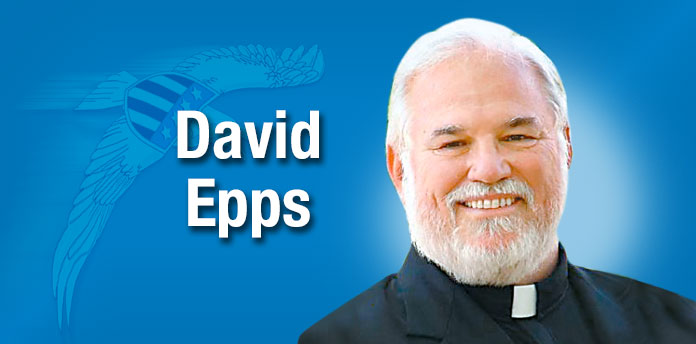This is the season for the people of the United States to do what some people around the world cannot do. We can vote to make our own personal preferences known. We can have a say, however small, in the selection of those who will be hired as representatives of the people.
When I was 18, the voting age had not yet been lowered from 21 to 18. When I was 19, I was serving in the Marine Corps and, though I could have been sent to Vietnam, I, and millions like me, had no say in who would make those decisions. As far back as World War II, when the age eligible for the draft was lowered from 21 to 18, there was a sentiment that if one could serve in the military, they ought to be able to vote, but nothing came of it.
The Vietnam War finally changed attitudes on voting. If a young man or woman can be sent to fight and die, he or she ought to be able to vote. And so, in July 1971, the 26th Amendment to the Constitution was ratified and the voting age was lowered.
Now, with a few exceptions, all citizens aged 18 and older have the right to vote. We sometimes hear politicians and pundits say something like, “This is the most important election in our lifetime.” All elections are important, and all elections have consequences, sometimes unforeseen. Every election is important, and every vote is necessary.
When I was a boy, I would watch migrating ants build a new dwelling place in the red dirt of the Tennessee hill country. One ant couldn’t do much. There was a limited burden of dirt that it could carry. But hundreds, even thousands, of ants, each doing its own part, could construct an ant hill with a labyrinth of underground tunnels in a remarkably brief period of time.
Oftentimes, the percentage of eligible voters who cast their ballots is abysmally low. That has been increasing in recent elections. According to census.gov, the 2020 presidential election saw the highest voter turnout in the 21st century with 66.8% of citizens 18 and older casting a ballot. That still leaves tens of millions of eligible voters who, for whatever reason, did not vote.
Several years ago, I was at a social function and a group of men were standing around discussing whoever was the president of the United States at that time. One of the men voiced an extremely critical and negative opinion with great gusto about the then-current administration. Finally, one of the other men, a very accomplished retired individual, said, “So, I take it that you voted for the other guy?”
The opinionated man said, “No, I didn’t vote. In fact, I haven’t voted in years.” The inquiring man then said, “Well *&$#. Then, as far as I’m concerned, you don’t have a right to say any *&^%$%@ thing about anything political.” He then walked away, and the group broke up, leaving the non-voter to stand by himself. Certainly, anyone has a right to an opinion. But, in that case, I walked away too.
I don’t presume to tell people how they should vote. That’s between them, their conscience, and God. As for me, I don’t vote for personalities, parties, or what other people say. I vote for a person’s stand on the issues that are meaningful to me.
I used to vote straight Democrat until I was expected to say “Yea and amen” to every item on the platform. I voted straight Republican until I authored an article not supporting the second invasion of Iraq and got blasted for my opinion by fellow Republicans. So, I am an independent and do the best I can with what is offered. It gets me flack from both sides but that’s okay, too.
In any event, I do believe that all eligible citizens of this country should vote. It is a right that matters and can help determine the future of the town, city, county, state, and even the nation. There is going to be a future, and somebody will help shape it. It may as well be you.
[David Epps is the Rector of the Cathedral of Christ the King (www.ctk.life). Worship services are on Sundays at 10:00 a.m. and on livestream at www.ctk.life. He is the bishop of the Diocese of the Mid-South (www.midsouthdiocese.life). He may be contacted at [email protected].]












Leave a Comment
You must be logged in to post a comment.